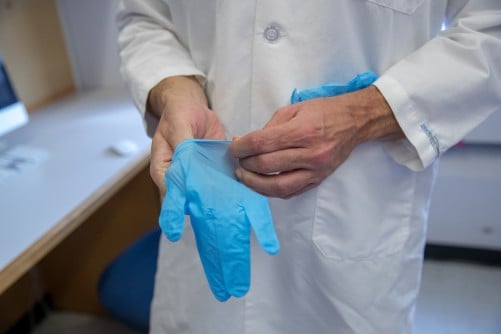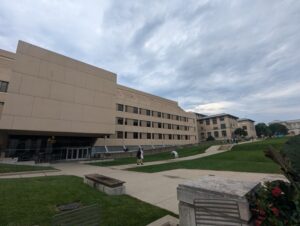
NEW YORK, NY (July 1, 2025) – Forensic pathologists are at the forefront of public health, playing a pivotal role in understanding human disease and injury. This critical function is highlighted in a new review article published in The New England Journal of Medicine on July 3. Despite its importance, forensic pathology remains a misunderstood medical subspecialty, often overshadowed by its portrayal in popular media.
Dr. Rebecca Folkerth, a leading figure in forensic pathology and the principal core scientist with the Neuropathology Brain Bank at Mount Sinai, is the lead author of the review. She emphasizes that while forensic pathology does involve autopsy examinations, its scope extends far beyond that. “Many people may picture forensic pathology as forbidding and dark, focused on death and criminal investigation the way it’s portrayed on popular television shows like Bones and CSI,” Dr. Folkerth explains. “While that is part of our role, the scope of forensic pathology goes far beyond autopsy examinations.”
Understanding the Role of Forensic Pathologists
Forensic pathologists are uniquely positioned to monitor and respond to public health threats. They provide critical insights into causes of death, contributing to public health statistics and aiding in the justice system. In the United States, these specialists undergo rigorous training, certified by the American Board of Pathology after extensive education and examination.
According to Dr. Folkerth, forensic pathologists offer crucial support to grieving families, often guiding them towards follow-up care if a heritable disease is discovered. They also facilitate the donation of tissues for medical research, bridging the gap between families and scientific advancement.
Collaborations in Research and Public Health
One significant collaboration involves the Mount Sinai Traumatic Brain Injury Research Center and the New York chief medical examiner’s office. Their joint efforts focus on understanding the long-term effects of traumatic brain injuries (TBI), which can lead to conditions like Alzheimer’s disease. Dr. Kristen Dams-O’Connor, Director of the Brain Injury Research Center, underscores the importance of forensic pathologists in this research. “Our forensic pathology colleagues are essential and valued partners in achieving this goal,” she notes.
“We aim to develop tests (biomarkers) that can be done in living people with traumatic brain injury to help monitor and prevent negative long-term effects.” – Dr. Kristen Dams-O’Connor
Forensic Pathology’s Impact on Public Health
Forensic pathologists contribute significantly to public health by providing accurate vital statistics that inform disease tracking and resource allocation. Their work behind the scenes is crucial during mass catastrophes, such as the COVID-19 pandemic, where they managed disaster mortuaries to handle the surge in fatalities.
Without their expertise, the burden on affected families during such crises would have been considerably worse. This underscores the essential nature of their work in protecting public health and managing unexpected increases in mortality rates.
Addressing Workforce Challenges
The field of forensic pathology faces a workforce shortage, a challenge that the study authors hope to address by raising awareness of the subspecialty’s significance. Encouraging young physicians to consider forensic pathology as a career could help mitigate this issue, ensuring that public health continues to benefit from their expertise.
About the Mount Sinai Health System
The Mount Sinai Health System, a leading academic medical system in New York, plays a vital role in advancing healthcare. With a vast network of hospitals, outpatient practices, and research labs, Mount Sinai is dedicated to addressing complex healthcare challenges, developing innovative treatments, and educating future medical leaders.
Mount Sinai’s integration of hospitals, labs, and educational institutions provides comprehensive healthcare solutions, leveraging cutting-edge technologies like artificial intelligence to meet patients’ needs. The system’s hospitals consistently receive high rankings from Newsweek and U.S. News & World Report, reflecting their commitment to excellence in healthcare.
For more information about Mount Sinai, visit their website or follow them on social media platforms such as Facebook, Instagram, LinkedIn, and YouTube.







